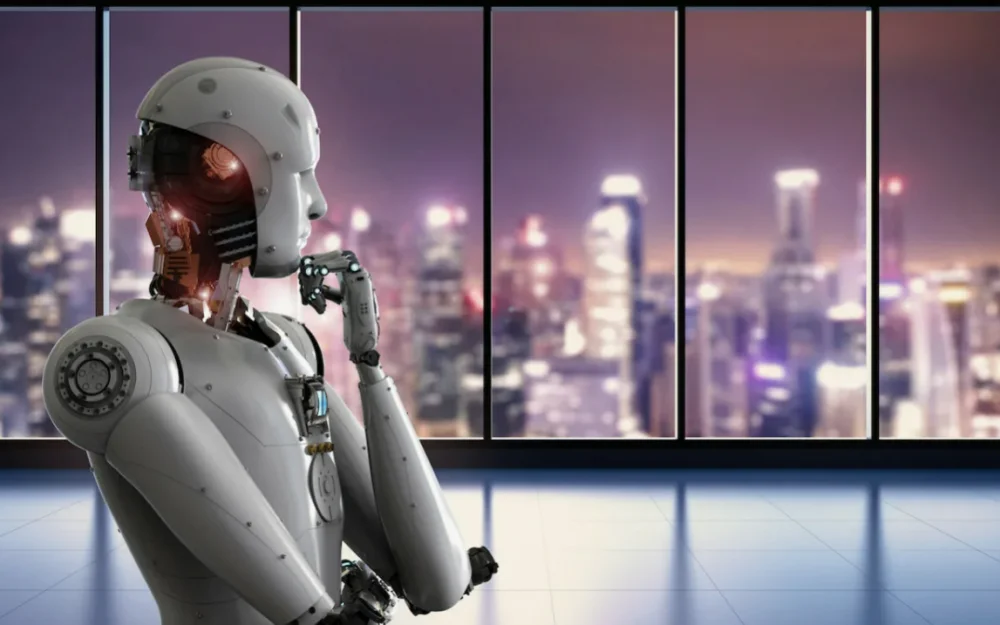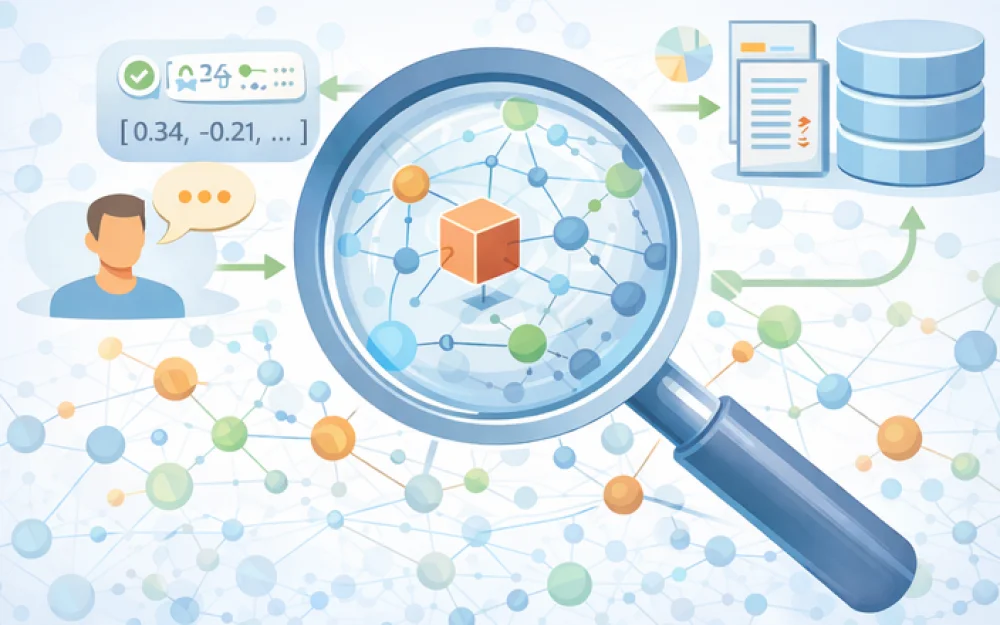- AI
- A
Artificial Intelligence: Between Promises and Reality
Hello, this is Sherpa Robotics. Today we want to discuss with you an article about the AI revolution, published in The Economist magazine. The authors note the low level of adoption of artificial intelligence technologies in Western companies. AI is used in only 20% of companies in the UK, 5% in the US, and 6% in Canada. According to Kept, 39% of companies in Russia use AI-based technologies. But how has artificial intelligence really affected the work of companies and their results?
In San Francisco, the heart of the technological revolution, artificial intelligence (AI) is the number one topic. Billboards promise us a revolution in the workplace, bars discuss the imminent arrival of "strong AI," when machines will surpass humans in intelligence. Five tech giants: Alphabet, Amazon, Apple, Meta, and Microsoft are investing heavily in AI. It is expected that this year alone they will spend about $400 billion on research, development, and equipment purchases. Silicon Valley is confident that AI will turn the world economy upside down.
But for expectations to come true, companies around the world need to adopt AI, adapt it to their needs, and become more productive.
Over the past year, the market value of the five tech giants has increased by more than $2 trillion, corresponding to the expectation of an additional $300-400 billion in annual revenue. However, the reality is much more modest. Even optimistic analysts suggest that Microsoft will get no more than $10 billion from AI product sales this year.
Outside of California, it is difficult to find evidence that AI brings real changes.One of the problems is the low level of adoption. Although many studies claim that generative AI is widespread (according to McKinsey, about two-thirds of companies regularly use AI), the real picture is more bleak. Official statistics show that AI is used in only 20% of companies in the UK, 5% in the US, and 6% in Canada.
Why is the AI revolution delayed? What prevents companies from widely adopting new technologies?
1. Concerns about data security, biased algorithms, and AI "hallucinations". McDonald's recently abandoned the use of AI in its automated checkouts after the system started making mistakes, such as adding $222 worth of nuggets to a customer's bill.
2. "Pilotism" - an excess of small AI projects prevents companies from determining the direction for large investments.
3. Rapid technology development. Companies are afraid to invest in AI that may soon become obsolete.
Those who go beyond experiments use generative AI for a narrow range of tasks.
1. Customer service. ADP, a payroll company, offers its clients "a new feature that allows them to use AI to answer questions and better understand how to initiate HR actions".
2. Marketing. Verizon uses AI for "personalizing plan recommendations", Starbucks - for "more personalized offers to customers".
But not everything is as optimistic as it seems.
1. Goldman Sachs created an index of stocks of companies that, according to the bank, have "the greatest potential for changing core earnings through the introduction of AI." The index included Walmart, H&R Block, and other companies. Since the end of 2022, their shares have not been able to outperform the overall market dynamics. Investors do not see the prospects for additional profits.
2. Klarna, an online financial services company, claims that its AI assistant performs the work of 700 support staff. However, this information is incomplete. Klarna hopes to go public and uses AI to attract press attention. CB Insights data shows that staff reductions began long before the introduction of AI.
Despite the heated discussions and investments in AI, macroeconomic data does not show revolutionary changes.
Where are the results?
1. The labor market is not experiencing mass layoffs, as many experts predicted. Unemployment in developed countries remains low, and wage growth continues. This contradicts the theory that AI reduces workers' power.
2. An analysis of employment data in the US does not show rapid movement of workers between companies, which would have happened if a large number of jobs had disappeared. The share of white-collar employment is even higher than before the pandemic.
3. Economists suggest that AI can transform the global economy, not by laying off people, but by making their work more efficient. Anders Humlum and Emilie Vestergaard conducted a survey of 100,000 Danish workers, and on average they believe that ChatGPT can reduce the time spent on a third of work tasks.
4. However, macroeconomic data does not show a sharp increase in productivity. Real output per worker in developed countries is hardly growing.
In the US, the main center of AI, labor productivity remains below the pre-pandemic level.
Why is the AI revolution being delayed?
1. Investment in AI is limited. Most companies are not ready to invest significant funds in the development of AI, and this is not surprising, since the real benefits of implementing AI are not yet obvious.
2. Most technological revolutions take time to spread through the economy. According to investors, most of the income from AI will come to large technology companies only after 2032.
The AI revolution is possible, but it will not happen in the near future. It is important to understand that AI is not a panacea, but a tool that needs to be used wisely and effectively.













Write comment